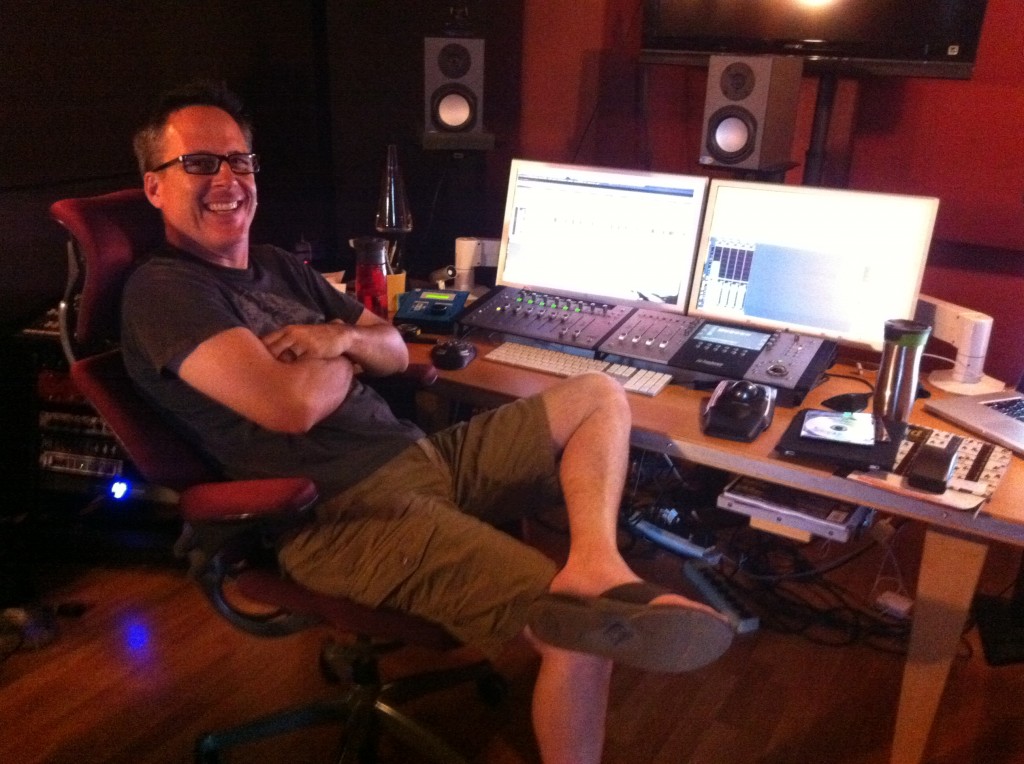Because most personal finance sites are garbage. One popular one is written by a 32-year old guy who admits to being 40 pounds overweight, yet gives diet and exercise advice.
Another of our favorites (damn, we wish we could link to these) is written by a guy who displays his negative net worth on his site. He lives in a rental house, is busy trying to have additional kids he can’t afford, and loves to tell people where they can cut corners in their own lives.
It’s like the blogs written by mothers who dispense advice on how to raise children, even though their own children are only 5 and 3 years old and the blogs themselves consist largely of pumpkin spice latte recipes and craft projects. (Okay, here’s a link.) If someone’s going to dispense “mom advice”, shouldn’t it be a mother who’s actually performed the fundamental task of motherhood: turning kids into productive and responsible adults?
These other sites have nothing to do with their ostensible topic of concern, be it personal finance or motherhood. They’re about sharing stories, baring souls, and finding love and acceptance among like-minded commenters who use exclamation points injudiciously. (Excellent post!! Great job short-selling your house!!!)
What makes Control Your Cash different is that we’re coming from a position of knowledge. Not necessarily intelligence, just knowledge. We know what works and what doesn’t, through plenty of real-world trial, error, and common sense, and we’re willing to share our findings with anyone who can read. We’ve lived hand-to-mouth, figured out that we didn’t like it, and learned how to build wealth instead. (Hint: it had nothing to do with reducing our energy consumption or renegotiating student loans that we shouldn’t have taken out in the first place.)
If you want to build wealth, buy assets and sell liabilities. Heck, our entire site could be reduced to those 4 words and you’d still learn more here than you would most other places.
If you don’t know what an asset is, it’s something that helps you build wealth. A liability, as we define it, does the opposite. That doesn’t mean to live under a bridge, eat at soup kitchens, and put every penny you earn into Apple stock. It means to live your life dynamically, acknowledging that certain expenditures can’t increase your wealth (although they might increase your non-monetary quality of life), while others can.
We live in a big, wonderful, abundant world, whose potential we as a species have barely tapped. Our planet consists of the same raw materials it had 4000 years ago, when we were living in mud huts, never traveling farther than we could walk, and having all our teeth fall out as a matter of course. Forced personal conservation is the very opposite of the mindset that got us to where we are today. You know, a place where we have exponentially more knowledge at our fingertips than even our parents did – essentially free of charge, no less. Where you can travel across the world for a few days’ wages. Where diarrhea is a mild inconvenience, rather than a childhood death sentence.
Sorry to go Anthony Robbins on you, but hear us out. Living for the express purpose of spending as little money as possible is barely living.
Stop preoccupying yourself with combining multiple errands into one trip and only shopping on double-coupon Wednesdays. Instead, examine what’s in your 401(k). Track its value over the course of a few months and figure out whether you can do better yourself. Take an hour to understand how the whole thing works. Read financial statements of publicly traded companies and buy undervalued stocks instead of complaining. Start your own business, and spend a few hundred now to save tens of thousands down the road. Implement 100% painless changes that will only positively impact your life, and save you real money in the process.
Instead of an emergency fund that isn’t intended to grow, take a calculated risk and put that money in an investment. Leverage it in real estate. Even the cheapest functionally sound home you can find can attract a tenant who’ll make your mortgage payments for you and let you enjoy tax benefits that non-landlords don’t even know about.
There are a million ways to reduce costs. Just ask the sages who think that it’s worth it to encourage you to waste time making your own detergent. Or inconveniencing yourself by turning off the air conditioning and fanning yourself instead. Or our favorite, improving your gas mileage via
pulling out (your) car’s seats (except the driver’s!), ash trays (sic), speakers, radio, sound deadening material, interior trim “and anything else not integral to the vehicle’s driving ability.”
(That can’t be true, right? That has to be a goof. Someone posited that, as ridiculous as it sounds, in the hopes that someone else would post it and a gullible tertiary party, we, would cite it.)
However, as many ways as there are to reduce costs, there are at least as many ways to increase revenue. To concern yourself with the left side of the ledger, rather than preoccupying yourself with the right side.
Are you playing to win, or to avoid defeat?
**This article is featured in the Baby Boomers Blog Carnival One Hundred-seventeenth Edition**
**This article is featured in the Carnival of Financial Camaraderie #7**





